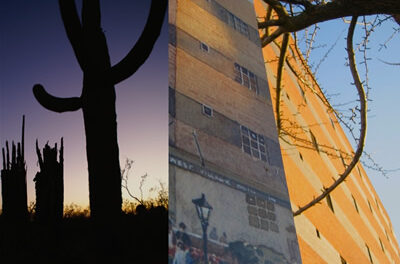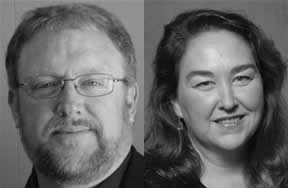 Despite the global pandemic, the Asheville Chamber Music Series is still bringing international performers to their North Carolina patrons. In fact, accessibility has never been easier – their concerts may be viewed by anyone with access to Youtube! The Asheville Chamber Music Series continues its 68th season with a performance by the Meccore Quartet. Filmed specifically for ACMS in the Meccore Quartet’s home country of Poland, the concert featured string quartet gems from Beethoven, Mozart, and Tchaikovsky. Although there was no in-person audience, the backdrop of the Arthur Rubenstein Philharmonic stage in Lodz, Poland, elevated the recording and added a certain level of elegance.
Despite the global pandemic, the Asheville Chamber Music Series is still bringing international performers to their North Carolina patrons. In fact, accessibility has never been easier – their concerts may be viewed by anyone with access to Youtube! The Asheville Chamber Music Series continues its 68th season with a performance by the Meccore Quartet. Filmed specifically for ACMS in the Meccore Quartet’s home country of Poland, the concert featured string quartet gems from Beethoven, Mozart, and Tchaikovsky. Although there was no in-person audience, the backdrop of the Arthur Rubenstein Philharmonic stage in Lodz, Poland, elevated the recording and added a certain level of elegance.
The Meccore Quartet is going on a 14-year legacy of international performances, festivals, and album recordings. The quartet has recorded four studio albums, and their latest album of Tchaikovsky quartets features the same beloved String Quartet No. 1 on this concert’s program. Among the four Meccore musicians, communication onstage is paramount, and it was delightful to glimpse individual personalities shining through the music. For example, Wojciech Koprowski, who played first violin for the Mozart and Tchaikovsky, was more physical and stern, while fellow violinist Aleksandra Bryla was more communicative via facial expression (which might have been missed when viewed from concert hall seats!). Violist Michael Bryla augmented his melodies by leaning in, and cellist Marcin Maczynski had a sort of wry, concentrated expression.
I would not have been able to pick out these expressive details without the added element of camera work at this concert – another benefit, or at least difference, to viewing a live-streamed concert. Although the camera angle switched among the performers, it enhanced the focus on each musician to highlight the phrase they were playing. At important cadences, the view was of the whole quartet. Instead of being jarring, this careful consideration of the music enhanced the performance.
Beethoven’s String Quartet in G. Op. 18, No. 2 was the first quartet that the composer actually finished – written during what is speculated to be happiest time of Beethoven’s life, the quartet is joyful overall, with little tension. The Allegro movement features the most intricate passages in first violin, and unpredictable cadential resolutions at times. Through the entire work, articulated two note-phrases end with a pause – singling out one player to shine for a moment. The Meccore Quartet’s level of synchronicity made each phrase a delight.
The long, languid phrases of the second movement of Mozart’s String Quartet in D, K.575, were certainly another highlight of the concert. The third movement, Menuetto: Allegro, saw the four musicians exploring a conversation-like exchange, and the fourth movement was surprisingly powerful.
Tchaikovsky’s Quartet No. 1 in D, Op. 11, provided a great contrast to the previous two pieces. Naturally, each string player’s parts are more independent, with ingenious and gorgeous chord progressions lying underneath. In the more energetic moments of Tchaikovsky’s music, the Meccore players portrayed the fullness of an orchestra; the gentle moments brought the audience back to the intimacy of a string quartet. Masterful writing, for sure, but it also takes a seamless quartet to accomplish both of these textures. With the virtuosic, powerful passages of Tchaikovsky’s Finale, the Meccore Quartet concluded a very enjoyable and detailed performance.












